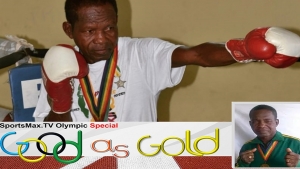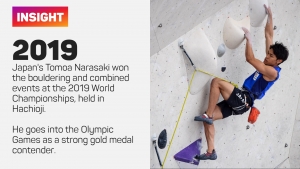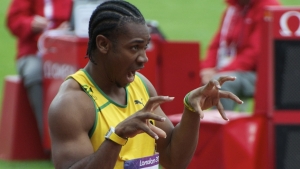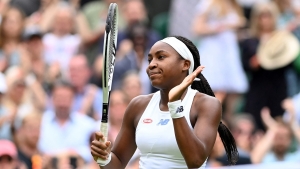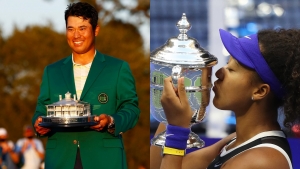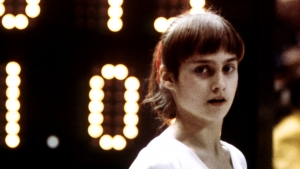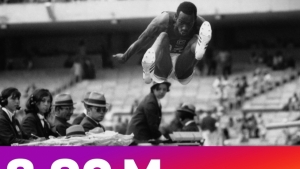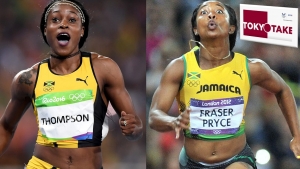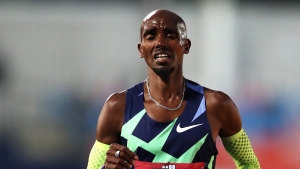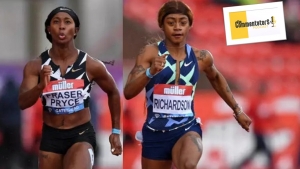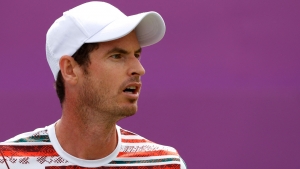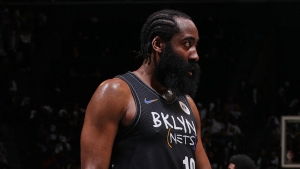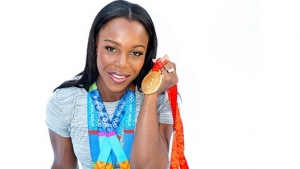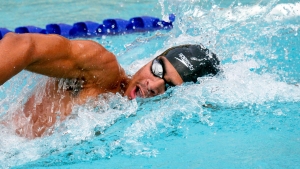The Tokyo Olympics will scale new heights, ride the crest of a wave, and hit it out of the park.
You can guarantee the Games will achieve that triple-whammy, because sport climbing, surfing and baseball are all part of Japan's big show.
The Games of the 32nd Olympiad have been hit hard by the pandemic, but the diversity of 'new' sports on offer means a feast of entertainment is beckoning, designed to attract younger audiences.
Skateboarding an Olympic sport? After snowboarding proved a raging success at the Winter Games, it was a banker that kickflips and Caballerials would be coming to the summer programme.
And soon enough we will all have a tight grip on the technicalities of lead climbing, speed climbing and bouldering.
The Olympics are getting a radical facelift, and you'll want to take a close look.
Sport climbing
Given the Olympic motto is 'faster, higher, stronger', perhaps it is a wonder that climbing has not been a part of the Games before now.
Yet this version of the sport is a relatively modern phenomenon, having first become established in the 1980s.
Climbing walls are as prevalent in many parts of the world as ice rinks or bowling alleys, becoming a fashionable leisure activity but a competitive sport for some.
Complicated routes to dizzying heights, seeking the highest controlled hold possible, are the hallmark of lead climbing, while speed climbing is an attack on the senses for competitor and viewer alike, with elite men having been known to hurtle up a 15-metre wall in barely five seconds.
Bouldering is a test of problem-solving expertise as well as skill, a true examination of the climber's wit and athleticism.
At Tokyo's Aomi Urban Sports Park, the climbing competition for men and women will cover all three disciplines, with combined scores deciding the medals.
Surfing
Sailing, canoeing and kayaking have been mainstays of the Olympic Games, and now surfing joins as a high-octane addition to the roster of sports.
The daredevil nature of surfing means it should prove one of the outstanding spectacles, assuming Mother Nature brings the Pacific coast waves Games organisers are looking for.
Each of the 20 men and 20 women competing will be allowed to ride up to 25 waves in 30 minutes, with their two highest scopes from the five judges being counted, so choosing the right moment for a high-tariff manoeuvre is all important.
Surf stars will be assessed on their "commitment and degree of difficulty, innovative and progressive manoeuvres, combinations of major manoeuvres, variety of manoeuvres, and speed, power and flow", the International Olympic Committee (IOC) said.
American John John Florence is a man to watch out for, with the 28-year-old two-time former world champion having built up his skills riding the waves of his native Hawaii. He suffered a worrying knee injury in Perth, Australia in May, but has recovered in time for the Games.
Skateboarding
Once largely portrayed as the preserve of weed-smoking punk kids, and certainly still patronised by the disaffected youth, skateboarding now comes with a highly professional element too.
Washington Square Park, Venice Beach and the undercroft of London's Southbank Centre have been epicentres of the growing subculture, but now the focus turns to Tokyo, where separate street and park disciplines will test the elite boarders.
Competitors will be assessed on the difficulty level, the originality and the execution of their displays at the Ariake Urban Sports Park.
This will be skateboarding's coming-out party as a major competitive sport, with the eyes of millions across the world setting their eyes on the stars who put themselves in more danger of injury than most Olympians.
Japan's Yuto Horigome and Aori Nishimura won gold in the men's and women's Street World Championship in Rome just a matter of weeks ago, ramping up the interest at home.
British 12-year-old Sky Brown, poised to become her country's youngest summer Olympian, will also be one to watch after recovering from a horror skateboarding accident last year that saw her suffer skull fractures. They are a tough set in this sport, with surely nobody braver than Brown.
Karate
Of course karate needed to be in any 21st century Olympics hosted by Japan, and it may be a surprise to many that this marks its debut at the Games.
The sport has Japanese roots and there seem sure to be home gold medals, while global exposure to karate is perhaps at an all-time high thanks to the popularity of Karate Kid spin-off Cobra Kai, the Netflix series.
Spain are a mighty force too, with Damian Quintero and Sandra Sanchez prime contenders for gold in the kata discipline, both being ranked number one in the world.
In the combat element, known as kumite, the jargon may take some getting used to for newcomers. One point, known as a Yuko, is awarded for a punch to key areas of an opponent, including the head, back or torso, while a Waza-ari is worth two points and will be given for a kick to the body.
An Ippon, for three points, is achieved by landing a high kick to the head or a punch to a grounded opponent.
Karate will take place at Tokyo's famous Nippon Budokan, which as well as being a famous martial arts venue also famously played host to The Beatles for a series of shows in 1966.
Rock acts including Bob Dylan and Cheap Trick recorded legendary live albums at the Budokan, which was built for the 1964 Tokyo Olympics and has also staged Muhammad Ali fights, one a standard boxing match in 1972 and the other a bizarre hybrid clash in 1976 with wrestler Antonio Inoki.
Baseball and softball
Baseball was an Olympic medal-awarding sport from 1992 to 2008 and softball had that status from 1996 to 2008, so you would be forgiven for not feeling any huge rush of enthusiasm about its return to the Games.
Unlike in basketball, the United States do not bring their baseball A-listers to the Games, relying on a group largely formed of minor-leaguers and free agents, and South Korea were the last Olympic champions.
This year the competition will feature the Dominican Republic, Israel, Japan, Mexico, South Korea and the United States, while the women's softball event will be contested by Australia, Canada, Italy, Japan, Mexico and the USA.
Japan's baseball stars are reportedly each in line for bonuses worth 10 million yen (£65,000) if they carry off the gold medal.
They won an exhibition event at the 1984 Olympics in Los Angeles, beating the United States in the final, and have since claimed a silver and two bronze medals.
























